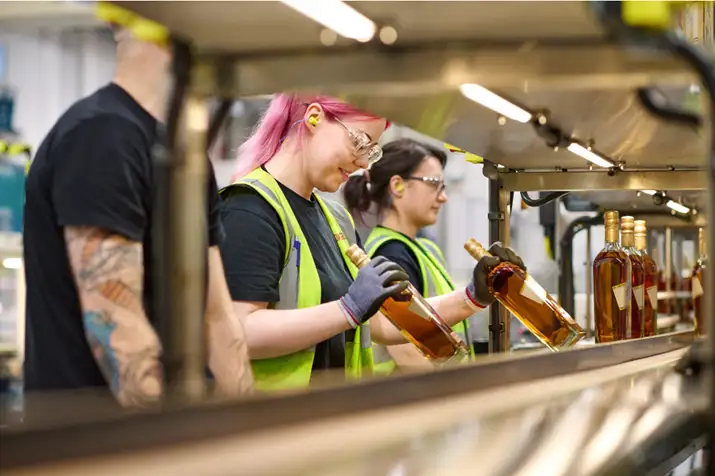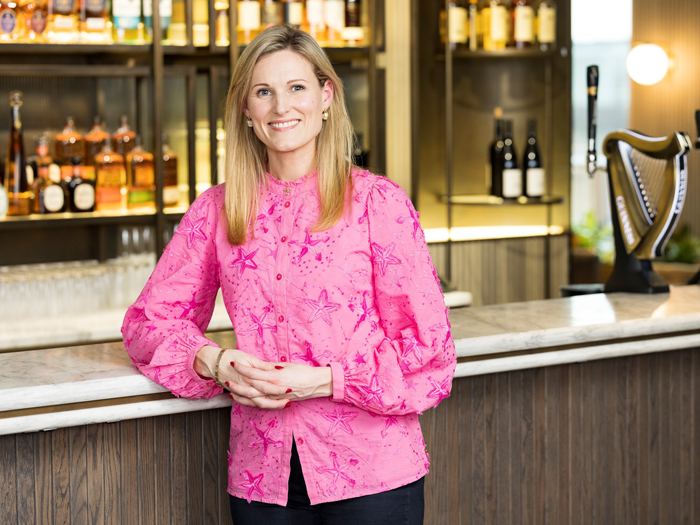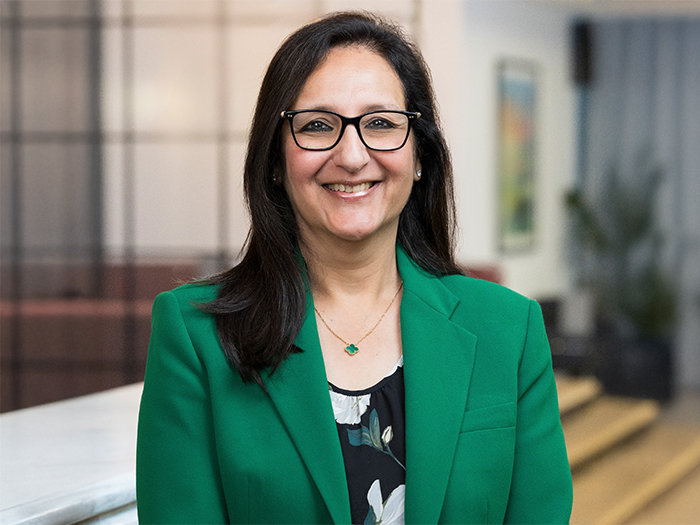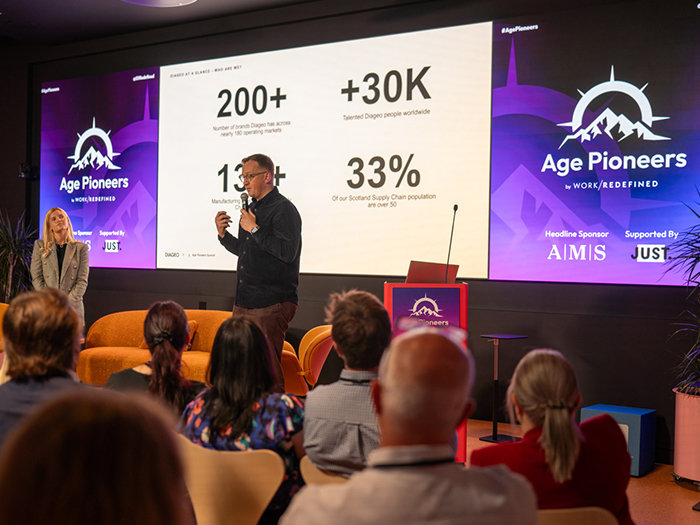We’re a global leader in premium drinks, the most exciting consumer products space.
Today marks World Menopause Day, where the global community comes together to raise awareness of menopause and perimenopause, and break taboos. Creating an environment where employees are supported and feel empowered to talk about their experiences of menopause and perimenopause is essential for our people and our business to thrive. It’s an important part of Diageo’s commitment to nurturing the most inclusive environment for our colleagues.
In March 2021, Diageo launched our global Menopause Guidelines ‘Thriving Through Menopause’, providing resources to employees and line managers who may be experiencing menopause or perimenopause directly or indirectly. We also worked with balance to launch an app for employees in June 2022, to further the understanding of menopause throughout our business, becoming the first global company to do so.
However, an essential part of raising awareness of menopause is to listen and learn from those those who have directly, and indirectly, experienced menopause. Hear from our employees Wambui Wahome and Ann McGovern who discuss how experiencing menopause has impacted them, as well as Rory Harradine, who shares his emotional story of how chemotherapy caused his wife to experience early menopause, and how he and his family have dealt with its effects:
At age 50 I’ve just started perimenopause, the period when your body makes the natural transition to menopause. I’ve experienced some nasty effects such as hot flushes, mood swings, and even depression. I’ve always been an extrovert who is the first person to support others and provide a shoulder to cry on, so when I fall into these mood swings, I feel like I am letting people down!
It’s so important to find what works for you when dealing with menopause. Exercising and improving my diet has been amazing for me, it gives me energy and allows me to get out of my head when I’m feeling the mental effects. But having open, honest conversations about what you're going through is the number one tool to thriving through menopause.
Menopause is not a big deal, and the more we talk about what is a natural part of life the more we will be able to de-mystify it and break the taboo. Women need to talk to their male colleagues, friends, and partners about it, it’s a topic they may not have much information on initially, but having a husband that I was able to talk to about menopause was so helpful.
I’ve also found that speaking to my colleagues about menopause and how it has impacted me has been incredibly rewarding, particularly with colleagues who are at the start of their careers. When I was in my 20s and 30s, we didn’t have the information about menopause that we do today, which made dealing with it when it arrived so much tougher. Getting younger people to talk about it now will help them and those that they love to prepare for something that, although often unpleasant, is completely normal.
The main effects I experienced were anxiety, depression, and anger, and they hit me quite hard. I lacked energy and on top of all of this, I could not sleep. It was a lot to deal with at once, so much so that at times I thought I was experiencing something much worse than menopause!
On a professional level, being honest with my team and my manager was so important to get through this period. Diageo was brilliant and allowed me to change my shifts to later in the day to combat my sleep deprivation. If you struggle to improve your sleep quality during menopause as I did, changing your work-life balance to accommodate these issues takes a lot of pressure off.
There were moments at work when I felt anxious about discussing menopause, I worried that colleagues would think I was lying about the effects so I could go home! However, that wasn’t the case, and speaking with colleagues, especially those of a similar age, actually gave me some fantastic tips for dealing with the effects and got rid of a lot of my pent-up anxiety.
I think this is an important lesson that goes beyond menopause. Wherever you work, you are going to have colleagues with different circumstances and needs. Learning that not everyone will work the same and accommodating these differences is essential to success.
In 2003, my wife was diagnosed with stage 4 breast cancer. It’s a situation no father, husband, or friend ever expects to be in, as I was suddenly juggling caring for my wife, raising a three-year-old son, whilst trying to work. It was emotionally intense; all I could think of was how could I even try and explain this situation to my son.
However, our oncologist became aware of a clinical trial that was starting at the University of Cape Town, which miraculously was looking at the specific cancer my wife had. We jumped at the opportunity and the bottom line is that the trial stopped the cancer. This was the most incredible news, we all felt like we had a second lease on life.
Now, anyone who has experience with chemotherapy knows that it can bring the most aggressive, adverse effects on the human body, and in this instance, my 32-year-old wife went into what is now known as early menopause. This wasn’t predicted, it was something we had to deal with as it hit, but together we now had to work through the physical and emotional impacts that came with it, the most difficult being that we couldn't have any more children. Fast-forward to today and her menopause has returned, and despite the previous experience it is still something my wife and I are both understanding to deal with.
In 2003, menopause was not a common subject, businesses did not provide the support they do today, and there wasn’t awareness regarding how to deal with it. Those years, when my wife went from the effects of chemo to the aggressive symptoms of menopause, was a huge learning experience for me as a husband, learning how to personally deal with the emotional impacts of such events but more importantly to help my wife deal with the impacts on her health, whilst helping my son to understand.
Looking back, a piece of advice for any male who has a relative, friend, or colleague going through menopause is to get as well-informed as you can. There were countless days when I felt like I didn’t know what to do, which is completely normal, but researching the facts and diving into the subject gave me the best chance to understand what my wife was going through. And most importantly, ask questions. Speak to your wife, speak to those who have supported someone else, speak to the experts. You can’t always help, but talking it out gives you as good a chance as possible.
It's important that employers help raise awareness of menopause and create an environment where employees are supported and feel empowered to talk about their experiences.
We are extremely proud of what we do to support our people, through tools like the balance + app, our commitment to raising awareness throughout the year, as well as the role of our Spirited Women research groups who so brilliantly open conversations around the world. We’re proud of our progress but we are learning every day and we know there is more we can do.






















